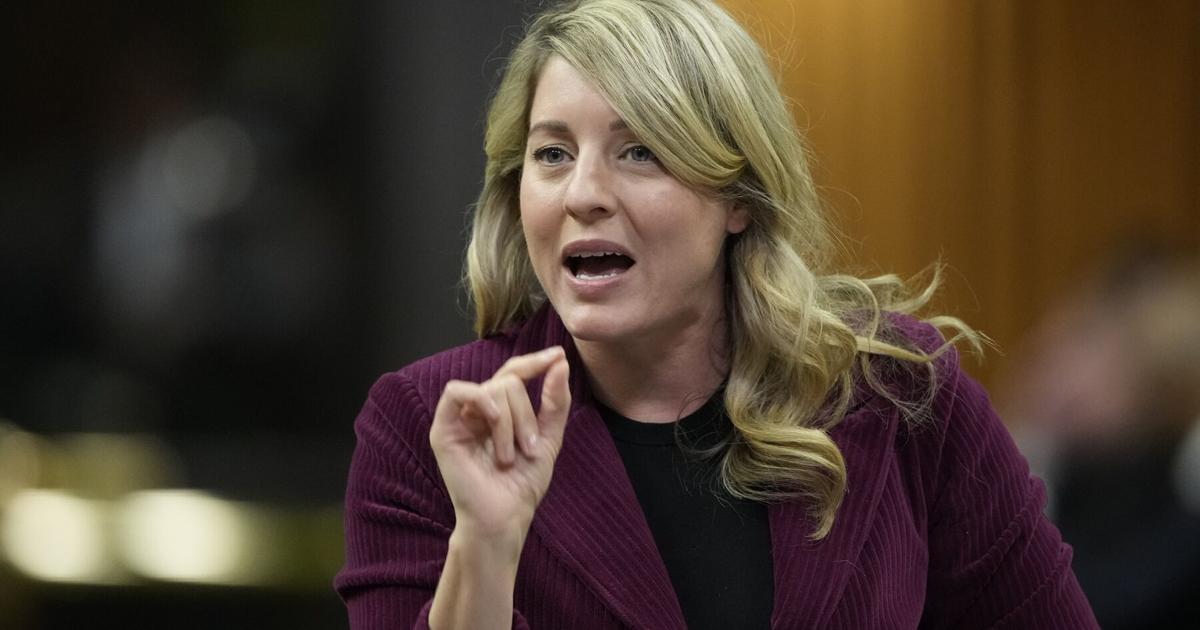OTTAWA — Stellantis and GM will pay an immediate price at the border for bailing on their production promises to Canada, the federal government advised the U.S. automakers Thursday.
According to a source with knowledge of a letter sent Thursday to Stellantis and GM, the federal finance and industry departments notified the companies they are no longer considered eligible to get the full break on Canadian counter-tariff duties on autos and auto parts they import to Canada because the carmakers fail to meet the requirement to maintain Canadian-based production.
Although the federal Liberal government repealed retaliatory tariffs against the U.S. on a wide range of goods in September, Canada retained certain counter-tariffs against U.S. autos, steel, aluminum. However, there was a framework for companies to apply for “remission” or an exemption on those duties on condition they maintain operations in Canada.
Now, days after Stellantis and GM announced cuts to their auto production plans in Brampton and Ingersoll, respectively, the federal government is flexing its power to deny the companies those counter-tariff exemptions on a big portion of the cars they sell in Canada.
The move means the companies will be required to pay an import duty on American-made autos they ship into Canada. In Stellantis’ case, the company will have an annual remissions quota of 50 per cent, meaning it will only be permitted to claim remissions on half its imports, said the source, who was not authorized to speak publicly. In GM’s case, the company will face a 24.2 per cent annual remissions quota, the source said.
It comes in response to two announcements in recent days that shook the Canadian auto industry, left thousands of workers facing job losses, and sent the federal government scrambling to respond.
Flavio Volpe, head of the Auto Parts Manufacturers Association, said the decision is important because Canada is the largest export market for the U.S. automakers.
“It is hundreds of thousands of cars that will now, again, be subject to a full tariff,” he said in an interview. “It’s a big, big move that will certainly garner the attention of the CEOs who, this past week, chose to end specific vehicle production in Canada while favouring their U.S. plants.”
Unifor president Lana Payne welcomed the news. In an interview she said the union, which represents autoworkers at both plants, has been pushing for such a response by the Carney government.
“If these companies only feel pressure from Donald Trump to shift production to United States and no pressure from our government, whether it’s through the tariff remission form or other forms of leverage then we’re gonna lose it all,” said Payne.
“We said to the government, you have to address this, and you have to play hardball with these corporations. We’re bleeding jobs here, we’re fighting for our lives. And if the remission plan can help us put pressure on corporations to keep production in Canada, then we have to do that.”
Industry Minister Mélanie Joly has said she will apply “maximum pressure” on the companies to respect their obligations to workers and to Canada. Joly met with GM executives Thursday in Ottawa after summoning Stellantis’ Canadian head Jeff Hines earlier in the week.
Stellantis last week cancelled plans to build a new version of the Jeep Compass in its retooled plant in Brampton and said it will shift production to Illinois, contrary to promises made in exchange for federal and provincial support for that plant and its EV battery plant in Windsor, with 3,000 workers left in the lurch. The federal government continues to consider its legal options tied to the contracts Stellantis signed in exchange for that funding support and production tax credits, according to a senior official.
GM announced this week it is ending production at its Ingersoll plant of an electric delivery van, leaving the future of 1,144 workers at its idled CAMI assembly plant in Ingersoll up in the air.
Formal notice went out to the companies Thursday that they would no longer get the counter-tariff break, hours after Prime Minister Mark Carney publicly acknowledged that talks on auto sector tariffs imposed by the U.S. will likely be punted into next year’s review of the Canada-U.S.-Mexico trade agreement (CUSMA), and are not part of immediate tariff relief discussions with the Trump administration.
The U.S. is only interested in sector-by-sector deals with all countries not only Canada, and is not interested in settling broader global trade deals, Carney said.
“If we ultimately don’t make progress in these various sectors, we’re going to do what’s necessary to protect our workers,” Carney said Thursday. “Part of that … starts with building, taking the control there, but it’s also not having unfair access to our market. If we don’t have access to another market — we’re not at that point, but we’re, you know, we’ll do what’s right in lockstep together” with the premiers.
The latest warning to U.S.-based carmakers operating in Canada comes two weeks after U.S. President Donald Trump and his commerce secretary Howard Lutnick made clear they want to drain auto production from Canada and bring it back to the U.S.
But as the Star first reported, the industry and unions feared the Carney negotiating team would agree to put off auto tariff negotiations into next year, and warned that carries a huge risk for the industry.
Error! Sorry, there was an error processing your request.
There was a problem with the recaptcha. Please try again.
You may unsubscribe at any time. By signing up, you agree to our terms of use and privacy policy. This site is protected by reCAPTCHA and the Google privacy policy and terms of service apply.
Want more of the latest from us? Sign up for more at our newsletter page.



